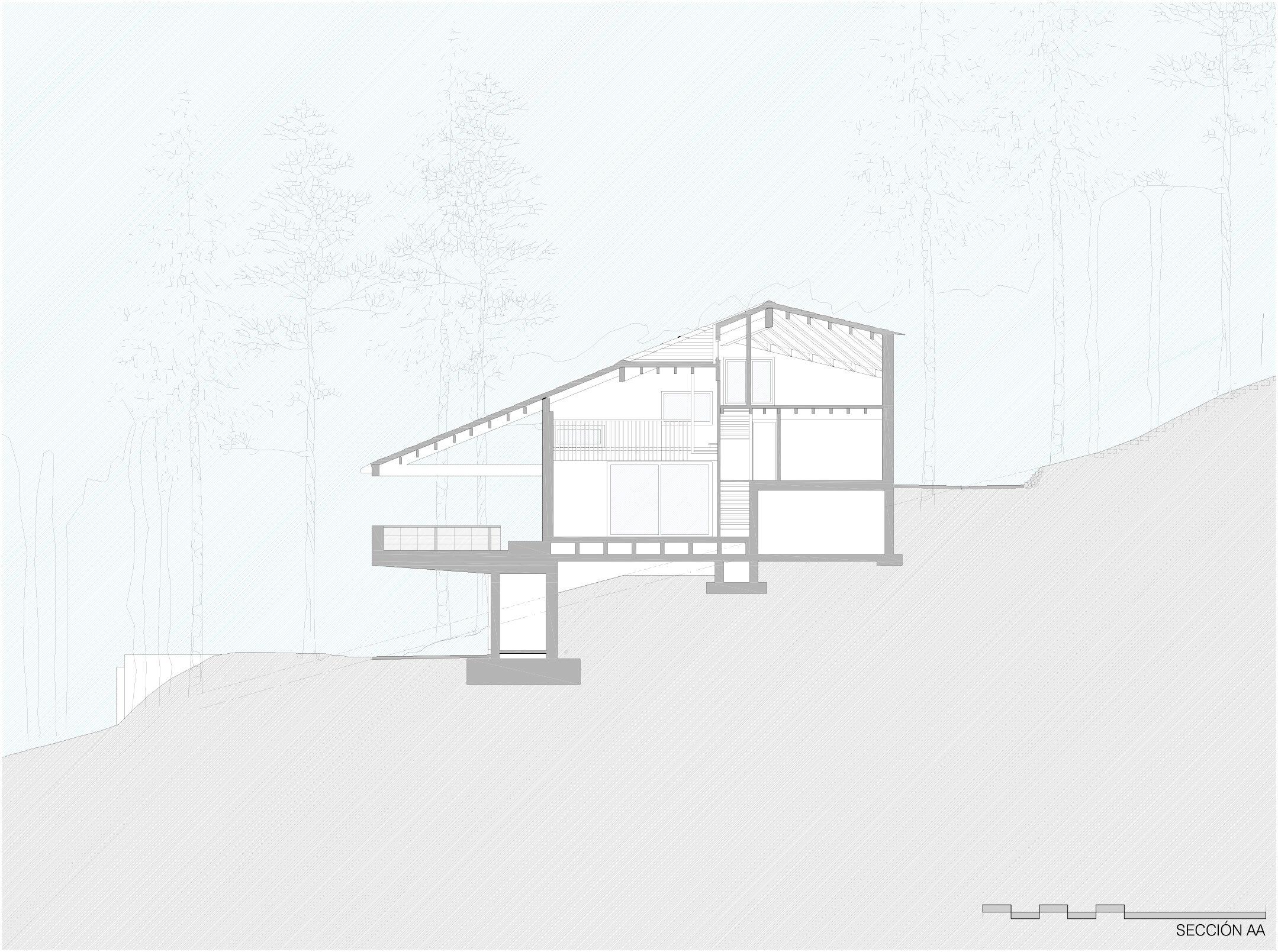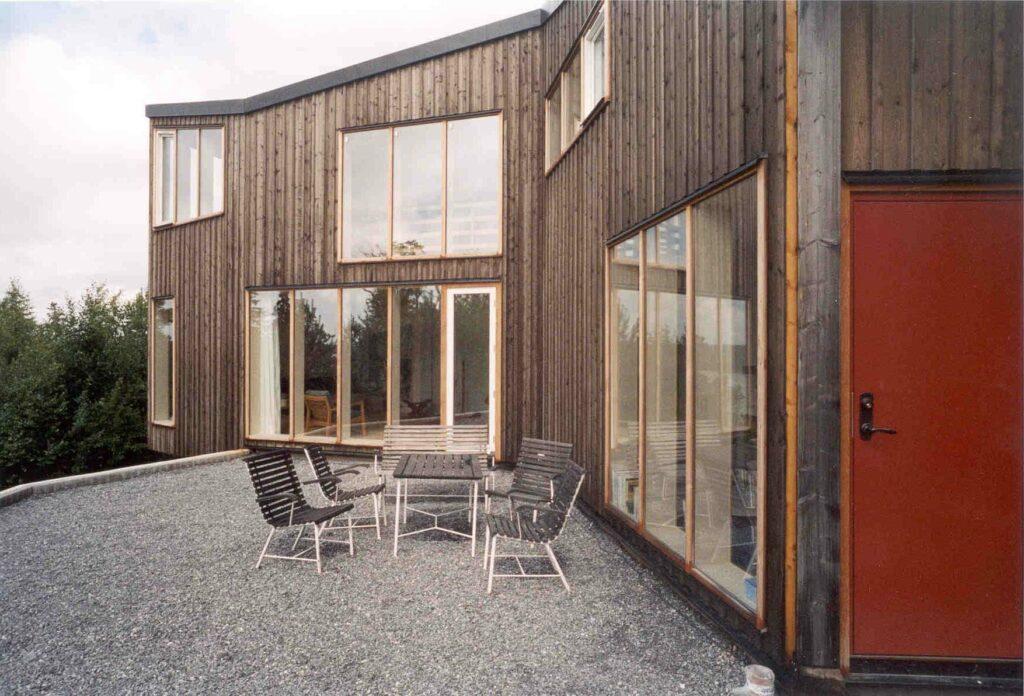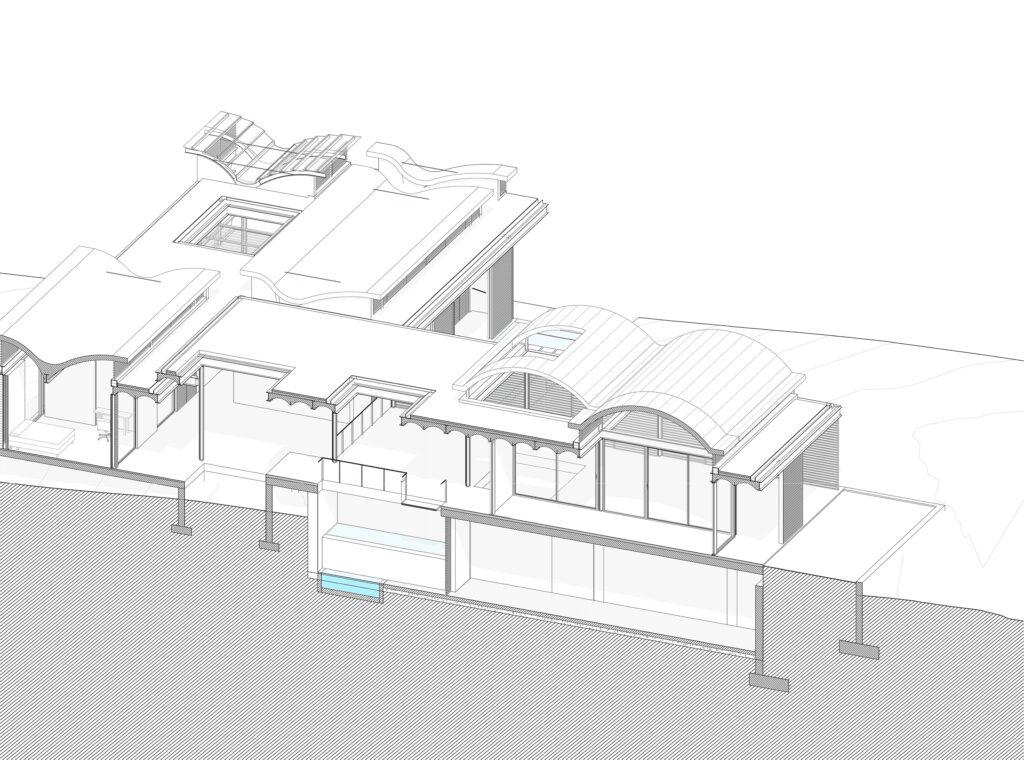
Country house in Abantos · Spain
· Residential
A wooden courtyard

For this site facing the monastery of El Escorial we designed a compact family country house, respectful of its wooded surroundings. The steep slope of the terrain conditioned the architecture and design of our project.
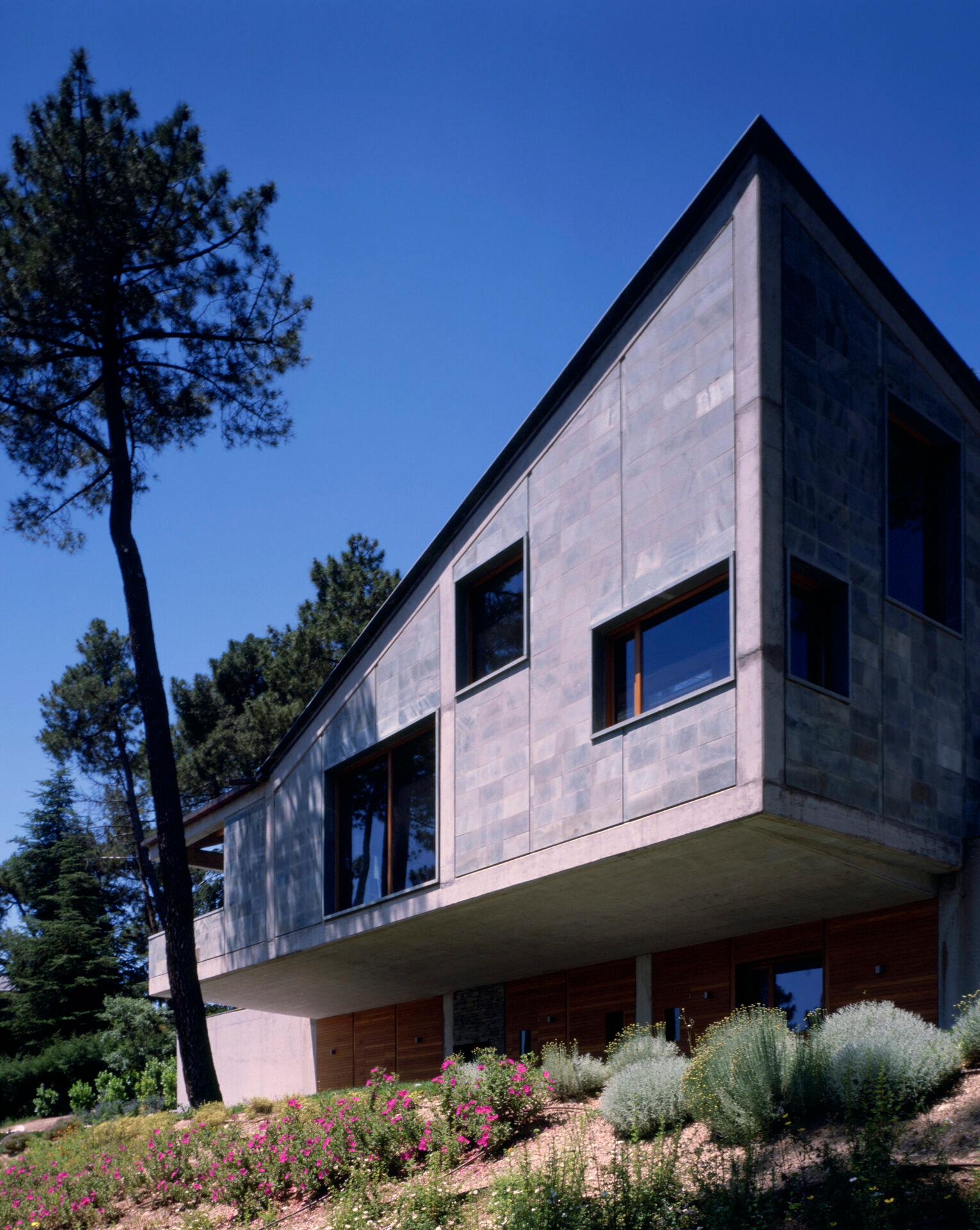
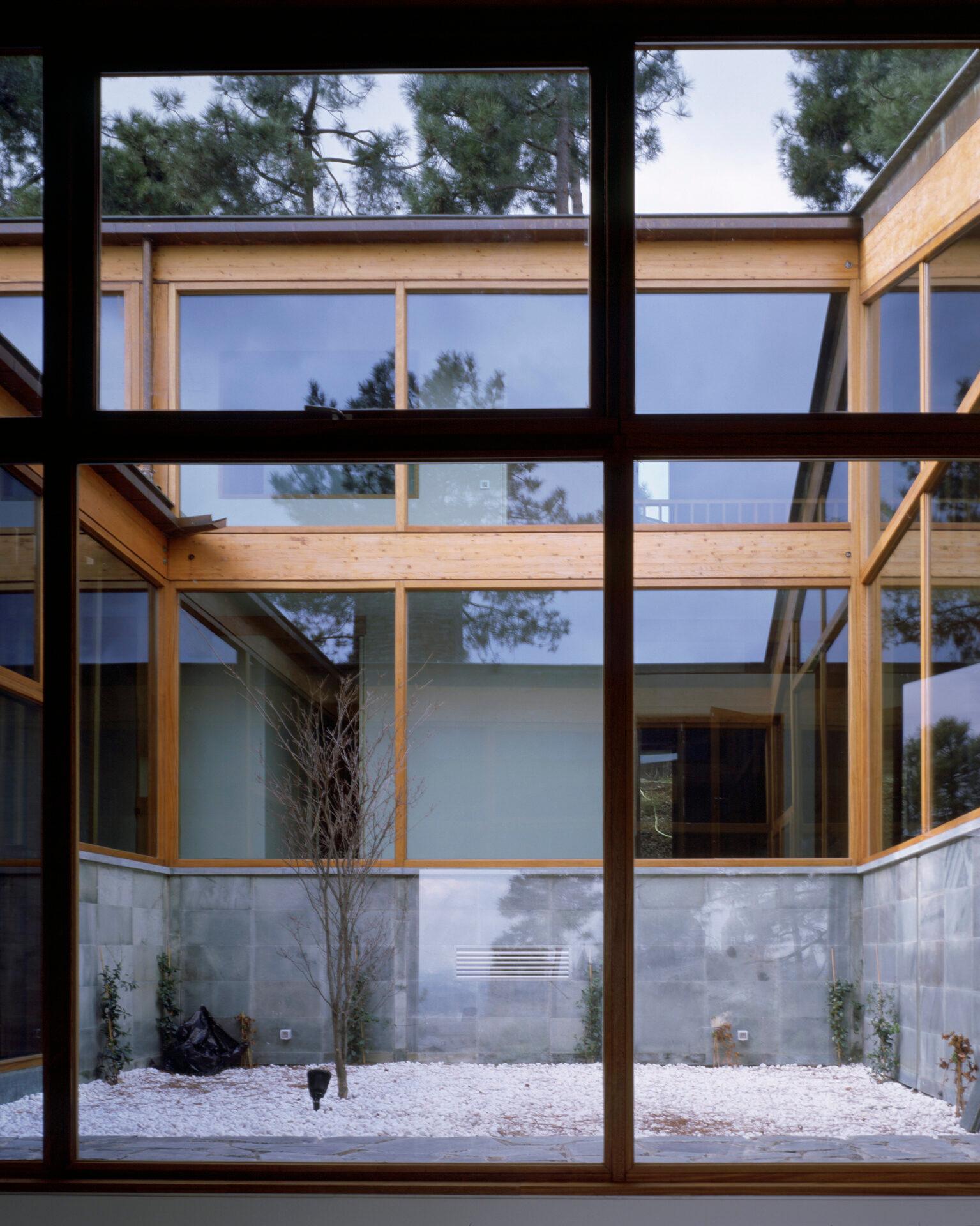
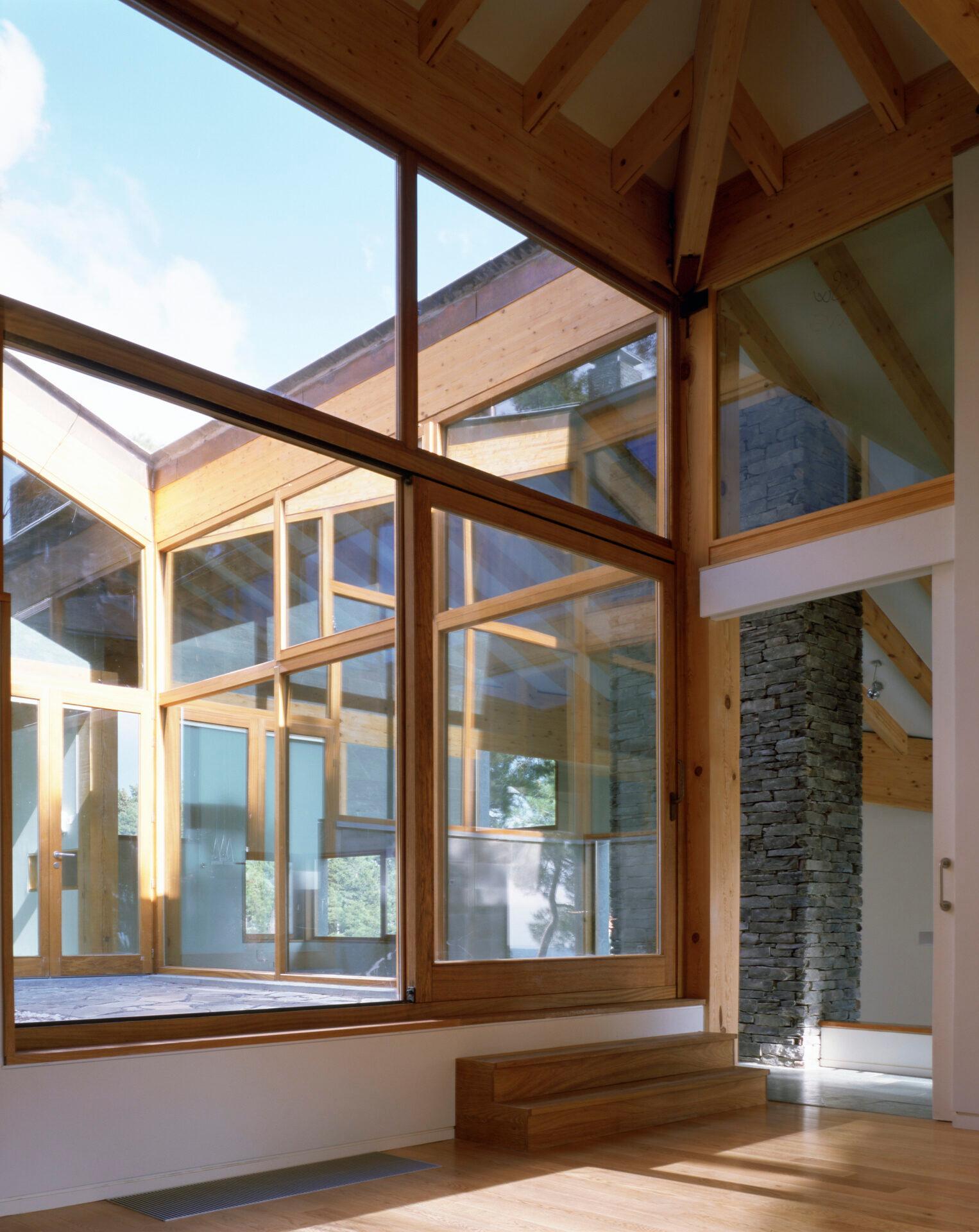
The plan is built on a nine square grid with a glazed interior courtyard. The lower floor is stepped, following the natural grade of the terrain. As a result, each space has an easy and direct relationship with the surrounding landscape, and the terraces to the north and south are natural extensions of the house towards the garden.
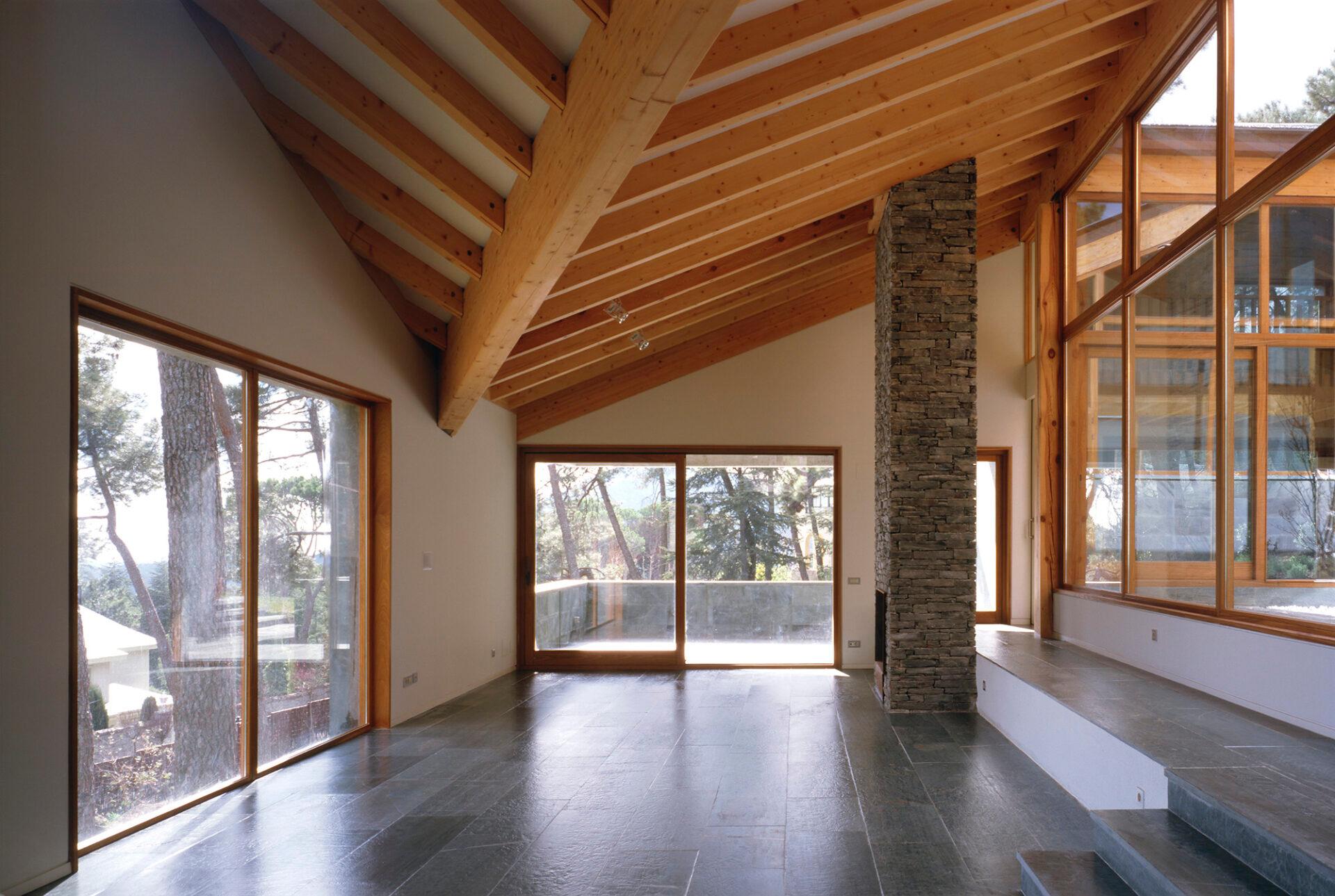
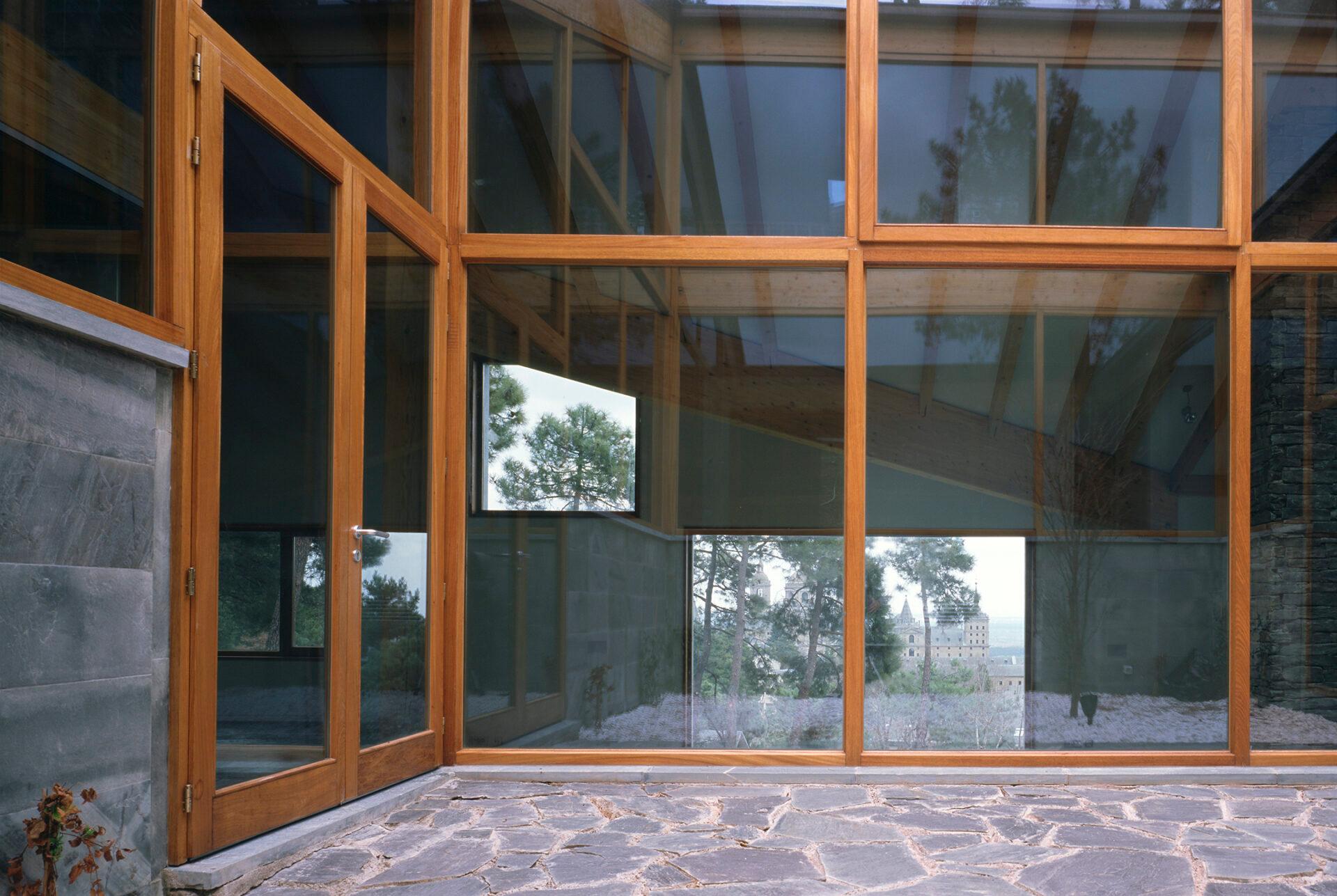

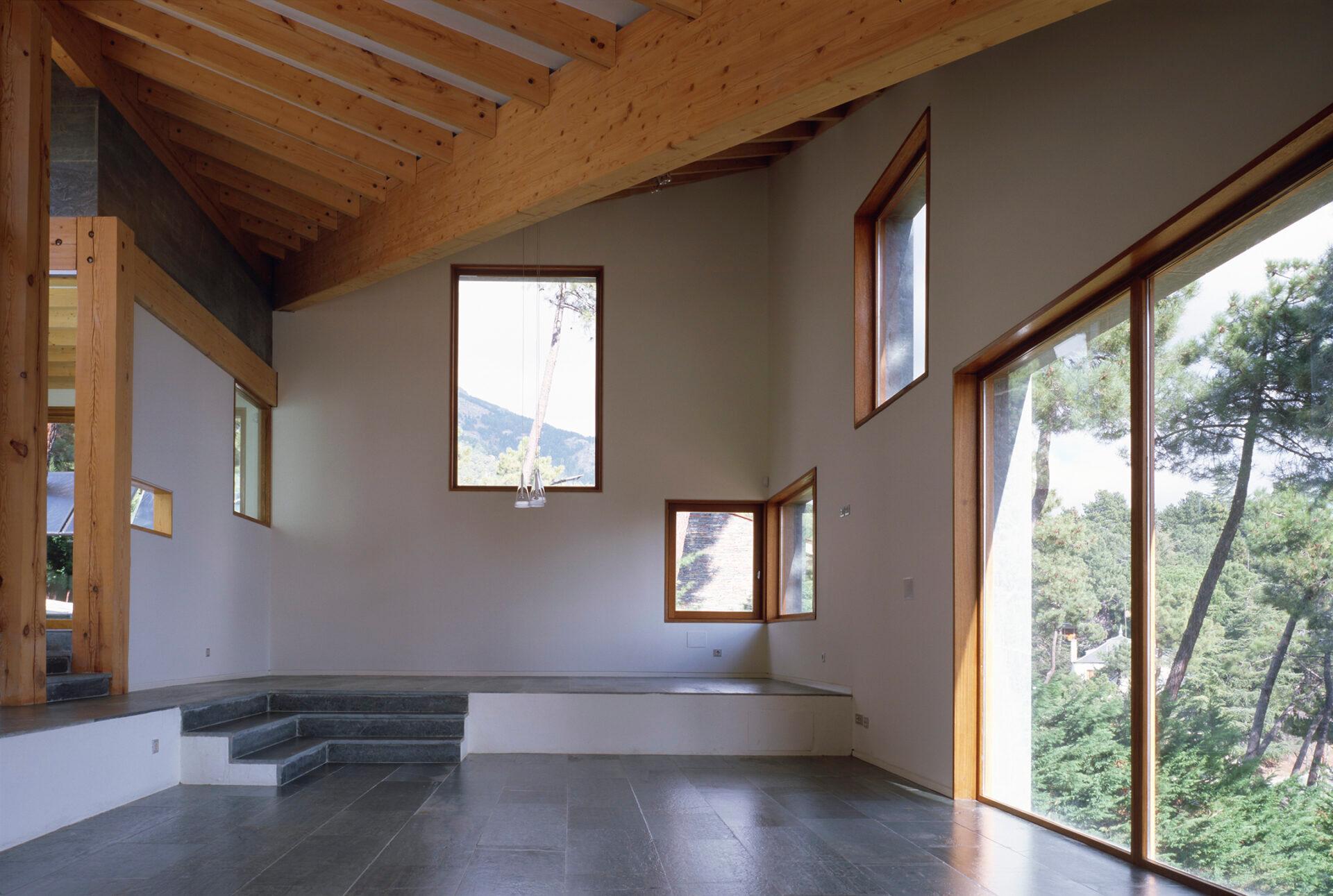

From both inside and out, the roof plane is perceived as a continuous, modulated surface whose inclination follows that of the land. Upon a simple plane a rotated square was inscribed, marking lines about which the roof was then folded. The resultant prismatic geometry is clear and direct. The house appears compact from the outside, yet spacious and lofty from within, with interior views passing through the courtyard and across fine carpentry details where hanging stairs integrate with interior woodwork, creating screens shelves and handrails.
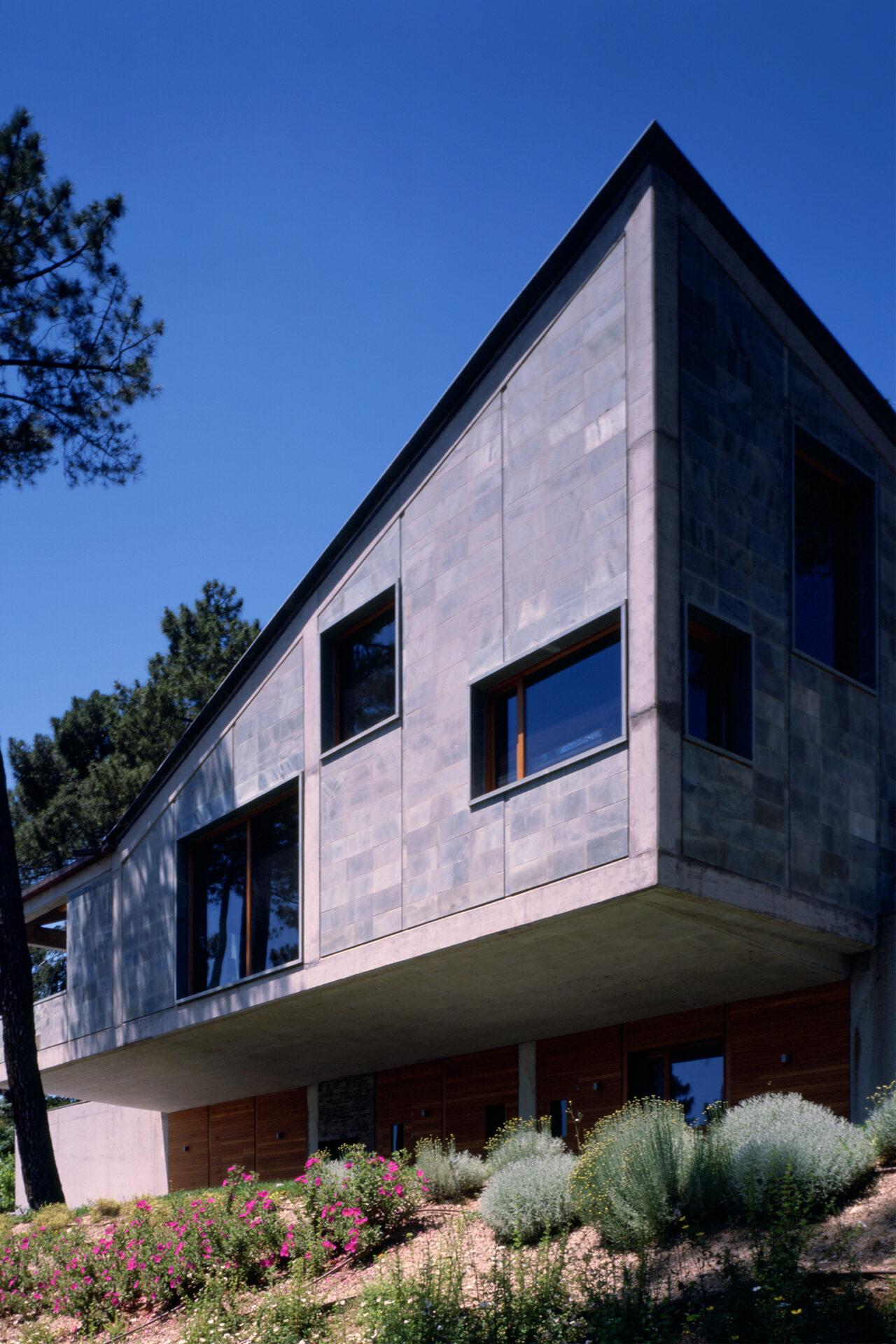
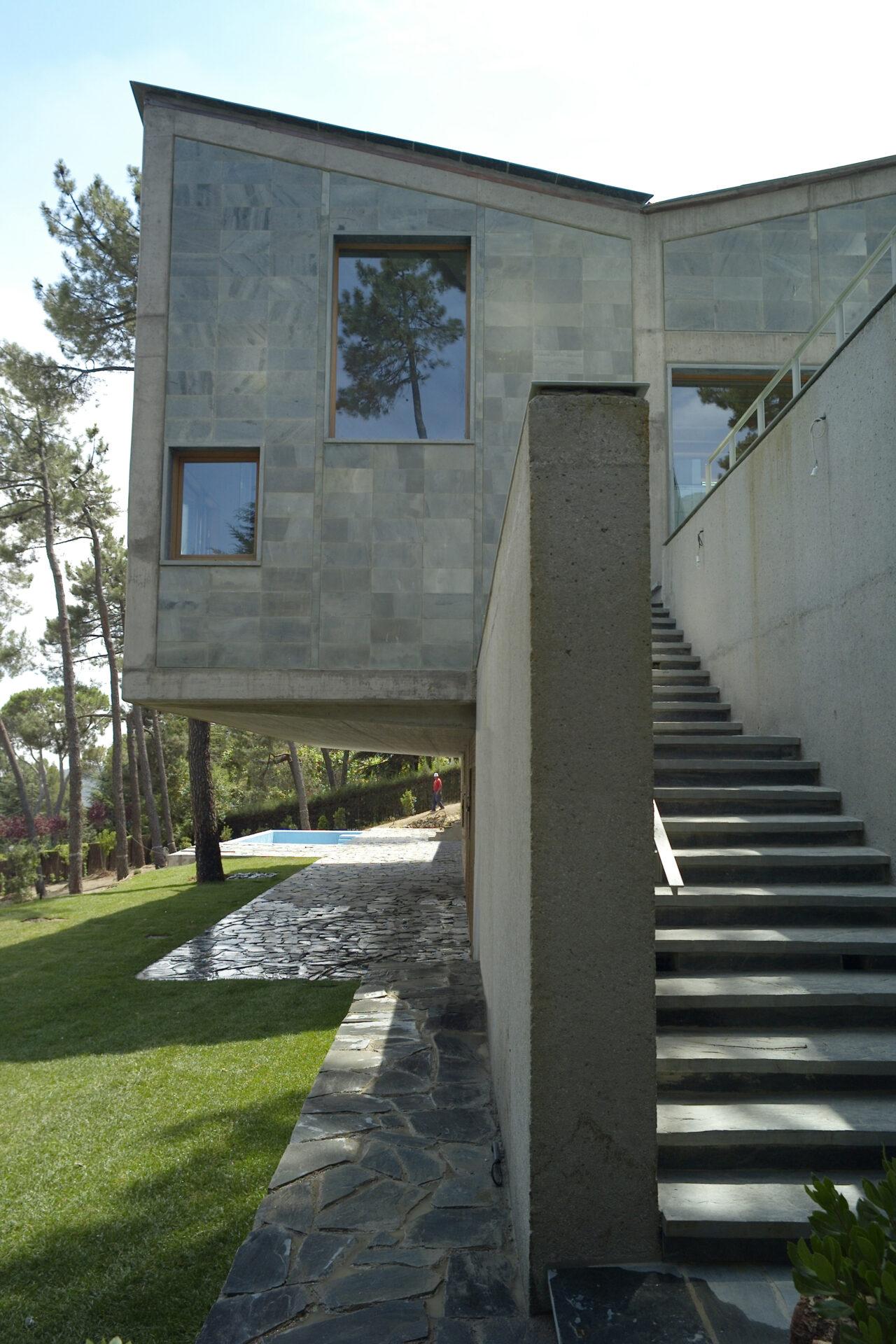
The volume of the house cantilevers over its foundations towards the east, forming a large porch among the pines. The cantilever embodies the idea of the house: that while it is well nested in the landscape it is also oriented towards the monastery. The lightness that is provided by the cantilever helps emphasise the aspiration that characterizes this relationship.
CLIENTE
Privado
LOCATION
San Lorenzo del Escorial, Madrid
GROSS AREA
4,435 sqft
LOT SIZE
30,3000 sqft
ARCHITECTS
Belén Moneo, Jeff Brock
ARCHITECTS TEAM
Íñigo Cobeta, David Gosh, Silvia Fernández, Andrés Barrón, Spencer Leaf, Brenda Moczygemba, Carlos Revuelta, Jose Galarza
TECHNICAL ARCHITECT
Apartec, Francisco González
3D MODEL
Andrés Barrón
STRUCTURAL ENGINEER
NB35


